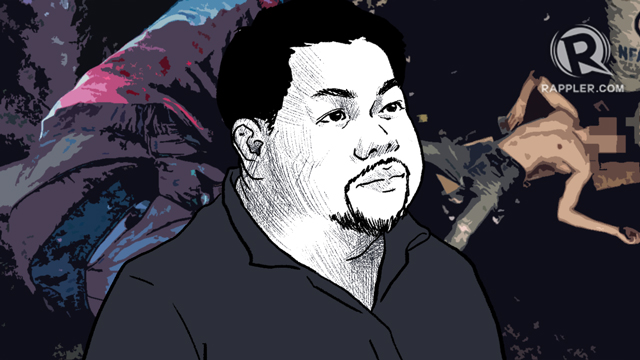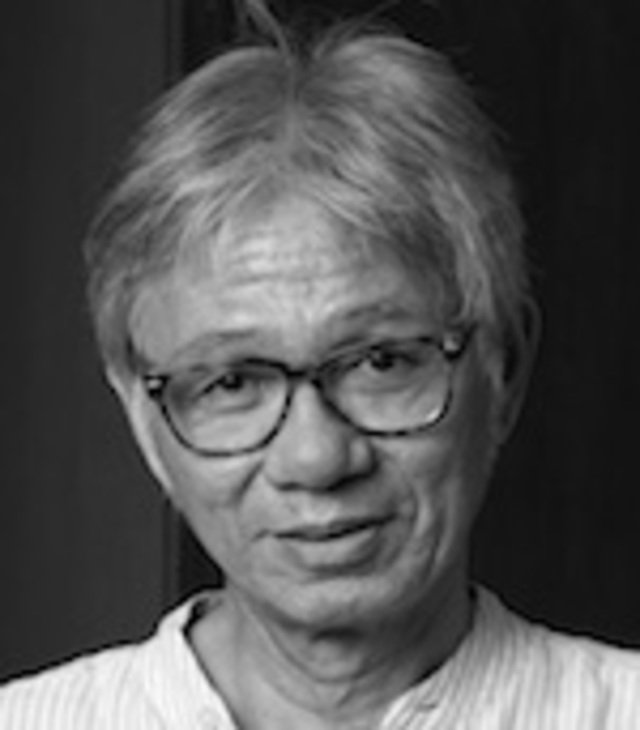Image may be NSFW.
Clik here to view.
Clik here to view.

Manuel Mogato is good for any prize at any time. But no prize is more deserved and propitious than the Pulitzer he’s just won for international reporting with two foreign partners at Reuters.
For that, he fought odds not encountered since Ferdinand Marcos's dictatorship (1972-1986). He did it with one hand tied behind his back, since his freedom was under threat, and also did it blindfolded, since the object of his professional quest was kept from him by threat, concealment, and subterfuge.
But, in the draconian regime of Rodrigo Duterte, Mogato has been cast in his moment.
I have known Manny Mogato for more than half his years, all that time as a reporter, a front-line journalist, which he would always be. As editor of 3 newspapers he reported for, before joining Reuters, I observed his quick and determined development into a police and defense specialist, one that very few, if at all, can compare today. It was he, and only he, I deployed to that delicate territory, convinced he was worth more than all the competition put together: he got the fuller story, and he got it more right.
Until our partnership as editor and reporter ended, I had referred to him as "Mogato" – "Send Mogato" – not "Manny," as I call him now that our dealings have become less impersonal, although rarer and more distant. Somehow I thought the name "Mogato" had the phonetic weight that matched his stature in the business – it also happened to match his physical bulk.
I imagine that Reuters' Manila bureau owed him the visit it got from the police, who strained to portray it as casual or routine or, as I actually heard it described, "clarificatory and conciliatory." No police visit is benign, and especially not one paid by Duterte enforcers to a news agency that had been reporting the war on drugs assiduously and in all its brutality.
As the "local guy" – although most assuredly he was far more qualified than that – Mogato presumably bore much of the burden and risks of the Reuters assignment. But if the Duterte regime thinks he’s a soft target, being precisely "local" – indeed, not a few locals have proved to be such – it is, oh, so mistaken. His Pulitzer is proof.
His winning work has been in fact validated, if grudgingly and self-contradictorily, by Duterte's own obsequious spokesman. "Definitely," said Harry Roque, "I’d have to congratulate Manuel Mogato, but the fact is...the drug war is legitimate; it’s intended to protect the youth from the ill effects of drugs."
"Legitimate" is a word Roque, a lawyer of incredible pretensions, likes to throw around, and, in this particular utterance, a word that resounded with moral bankruptcy: More than 20,000 have been killed in his president's war.
In fact, among the "key accomplishments" in its first year, ending July 2017, the Duterte government lists in the section "Fighting Illegal Drugs" 20,322 kills, which come to 1,700 kills a month, or 56 a day, on the average. These numbers more or less match those the news media themselves have been reporting, and their magnitude alone is reason enough to call into question the legitimacy claimed by Roque.
When cited by the media, those same numbers routinely met with protests of "fake news" from Duterte and his police and troll hordes, who quibbled that fewer than 4,000 deaths were on the government’s hands and the rest on the hands of vigilantes, as if they were acting on the order or incitement or inspiration of someone other than Duterte. In any case, the responsibility has been finally fully acknowledged, set down in official print, though, again, likely a Freudian slip.
Well, Mogato is the last to be fooled. He knows that, along with his Reuters colleagues, he is a particular target for the particular crime of putting names and faces to some of those numbers and detailing the cold, sick, subhuman instincts with which Duterte's war has been prosecuted. He knows that, under Duterte’s regime, truth seeking and telling are particularly hazardous business.
And that was precisely the context in which he set that cry he raised on winning his Pulitzer, "Tuloy ang laban!"— The fight goes on! – Rappler.com
Image may be NSFW.Clik here to view.
